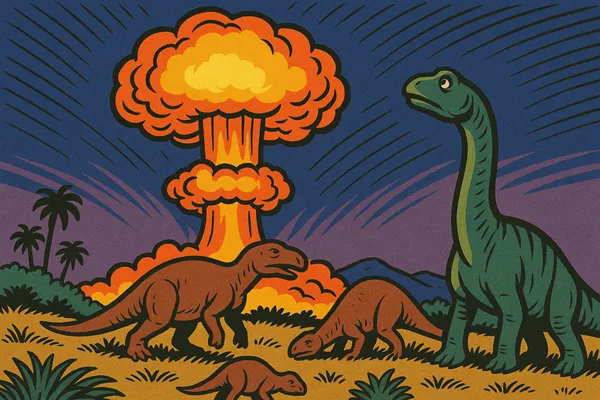
Is AI Coding an Extinction Event for Software Engineers?

Is software engineering as we know it doomed? My answer: sort of - but really, the answer is it depends. The key lies in the phrase 'as we know it.'
AI is to Software as the Tractor is to Farming
In December 2023, the Economist wrote an article comparing generative AI to the tractor. It turns out the tractor was the ChatGPT of its day, promising a huge increase in productivity, and completely eliminating horse-drawn plowing. Agriculture was still a major part of the US economy (15% of GDP), and there was a high degree of fear about the transition. But harnessing the power of the tractor required a fundamental reshaping of agriculture itself. The ability to quickly plow more land drove a wave of consolidation into bigger farms. The economic effects were profound, but consolidation of farms took time.
For software engineering, the timeline will be far shorter, but the impact will be profound. The comet has already landed. If you’re leading an engineering team, the change isn’t coming - it’s here. And I believe that to really harness the benefits of AI, Software Engineering has to change.
Lessons from a “Typing Pool” Engineering Manager
Early in my Microsoft career, when I was working on Internet Explorer, I worked with an engineering manager called Eugene. He ran his team like a typing pool: designing systems in detail, whiteboarding with his team, then delegating coding tasks even down to the method level. Then the engineer would go off and write the code, that Eugene would review and refine. Eugene's net output was extremely high, and he also did a great job of training his team.
That model is strikingly relevant for AI-assisted development today. Think of AI as your mid-level engineer: capable, fast, but also in need of strong guidance, review, and guardrails.
From Old to New: How Work Shifts

To succeed as an AI powered engineer, you need to delegate but not abdicate responsibility. You create structure, guide, and perform quality control on the software produced. And just like a junior coder, you can tell your agent what’s wrong with the code it wrote and be clear on what needs to change.
Taking it further, you should collaborate with your coding agent to define and break down a software project, set up a framework for iterating, and then review progress. Think of prompting as a new programming language - it happens to resemble English, but it requires a high-degree of specification and structure. What's also unique is it's a programming language, with no syntax errors - you need to get good at detecting when the output is wrong.
One other observation – just like junior engineers, coding agents are happy to go down a rabbit-hole and iterate endlessly on a minor detail. Don’t get trapped in excessive iteration, it's important to keep the BIG PICTURE in sight.
Zooming Out: Team-Level Shifts
For CTOs and engineering leaders, the real opportunity is instituting this shift across the entire organization.
- Treat Prompts as source code - standardize, version, and review them.
- Write Designs in Markdown - lightweight, shareable, and enforceable.
- Create Schemas for task breakdown - consistent frameworks make AI delegation scalable.
There is a social aspect as well. Successful adoption requires wholesale embracing of the change. You need to get your top engineers and architects on board and have them champion best practices and lead. AI adoption needs to be seen as 'how we do things' rather than a 'bolt on'.
It’s also exciting to see new tools emerge such as Archon, aimed at enabling AI management, task refinement and collaboration. It will be fascinating to see how IDEs and development environments change with this shift.
What Doesn’t Change
Some fundamentals of engineering won’t disappear:
- Translating business requirements into designs.
- Understanding system architecture.
- Anticipating technology shifts.
- Reviewing and reasoning about code.
And one more: collaboration. The “lock the door and code” engineer archetype is no longer enough. The future is co-development, and collaboration.
Why This Matters Now
AI won’t eliminate software engineers - but it will dramatically change the discipline. The question is not whether to change, but how fast.
I'm seeing a lot of engineering organizations not getting this right as yet, and not everyone understands the full implications.
If you're effectively already using AI, I'd love to hear what you're doing and what works well. And if you don't think your organization has mastered this as yet - LET's chat!
